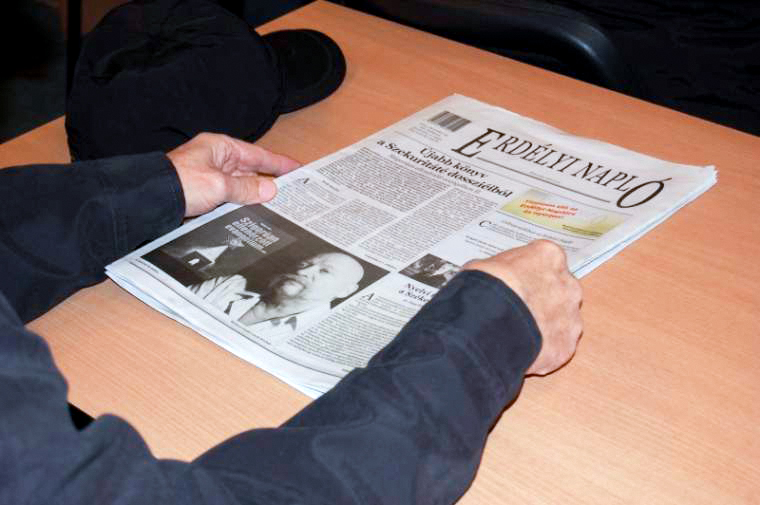After the change of regime in 1989, the publication that evoked "new times, new songs" was one of the first to appear. After its short-lived daily career, it became the dominant weekly of the Hungarian press in Transylvania, covering Hungarian public life in Romania over the past 33 years, the changes in politics and the associated changes in newspaper publishing. reflected difficulties - writes József Makkai in his column on erdelyinaplo.ro to bid farewell to the printed version of the Erdélyi Napló.
"The termination of this publication that understands the "Christian age" - like the Krónika and Székelyhon dailies published in the newspaper group - is also a puzzle for the employees of the media group. Our newspapers have experienced difficult times and changes of ownership in the past, but we have always managed to carry on with the publication of the paper by tightening one belt after another.
It seems that all the problems and troubles have added up this fall. The immense negative impact of the war in Ukraine is also behind the more than doubling of newsprint prices. Such a price explosion is very difficult even for newspapers with a large number of copies to manage, let alone the Transylvanian Hungarian press bleeding from a thousand wounds.
This was the moment when the owners in Hungary thought that the publication of printed papers should be stopped. Lacking additional funding, the Transylvanian publisher had no choice. The painful decision was made, which not only means the end of the printed papers, but also the jobs of many colleagues.
As usual, not everyone was affected by the news. Those who are pushing to have as few Hungarian-language newspapers as possible in Transylvania and the Carpathian Basin have noted with satisfaction that after the "seven rich years" the Hungarian government is saving money on its "own camp" by cutting cross-border subsidies for press subsidies as well. much less money. Those who gloat will not even realize that Hungarian-language publications in Transylvania walk in similar shoes to us. Most of them struggle with financial problems: they find it difficult to pay the printing bills, and the salaries are small, even if the publication of the paper is financed in exceptional cases by a local government institution. Today, the question is not why Krónika, Székelyhon, or Erdélyi Napló, published as a supplement to the two dailies, ceased to exist so suddenly, but when will the other printed Transylvanian Hungarian newspapers meet our fate? Under the market conditions, it is no longer possible to publish not only Hungarian in Romania, but also printed newspapers in the Romanian language in a profitable and self-sustaining manner. Each paper lives as long as it can generate the money necessary for its maintenance from various external sources.
We are at the end of an era in journalism. We have experienced such great changes in many areas of life, but now the print media has also suffered its fate. I don't want to bury the newspapers with a printing smell, but to warn you that in the coming years it will be a curiosity if we can still get our hands on one of these publications. Meanwhile, life goes on in electronic form, with articles appearing on computer screens or smartphones. So this is the moment of farewell. I thank both colleagues and readers for their many years of perseverance. Nice job!”
Source: József Makkai / erdelyinaplo.ro
Photo: erdelyinaplo.ro












